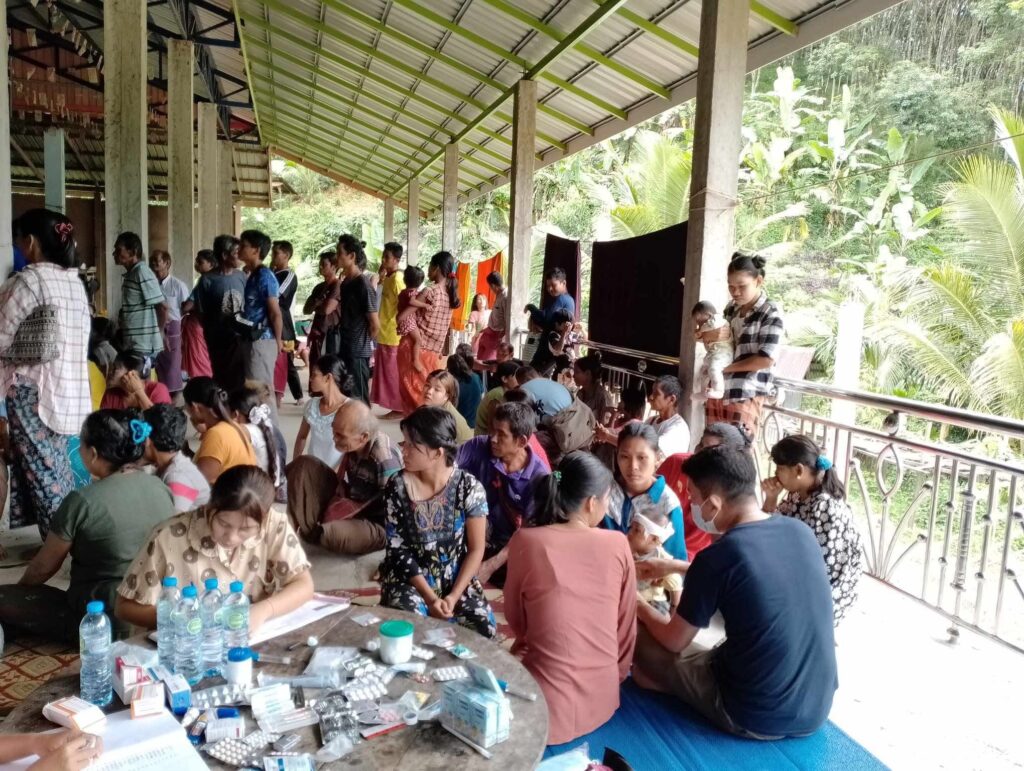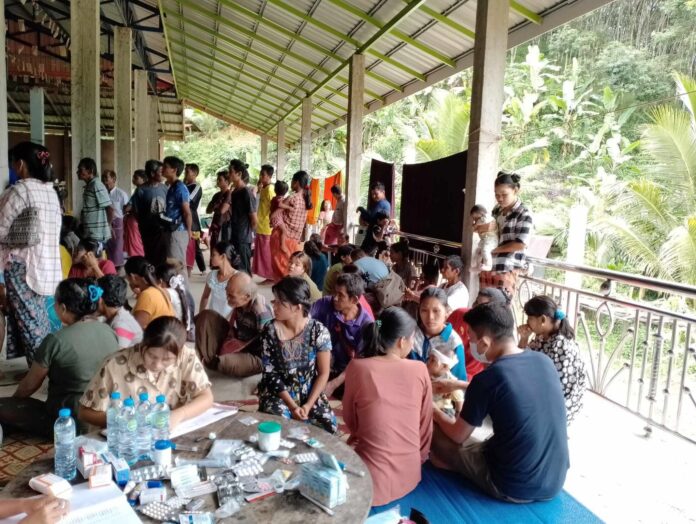Malaria infections continue to rise across all districts in areas controlled by the New Mon State Party (NMSP), according to data from the Mon National Health Committee (MNHC).
Between January and June 2025, a total of 2,498 malaria cases were reported. According to an MNHC official from the Disease Surveillance and Evaluation Department, the number of infections has surged significantly since May and remains high into late July.

“In recent months, we’ve seen a noticeable increase. And even these numbers only reflect about 60% of the actual data—we don’t have access to many remote areas. So the true number of cases could be much higher,” the official said.
The Ye Chaung Pyar region has reported the highest number of cases. Nearly all neighborhoods in at least 17 villages—including Weizin, Weipaung, and Dhammaparla—have been affected, with most patients testing positive for Plasmodium falciparum (P.F), the most dangerous strain of the malaria parasite.
“P.F is especially dangerous, and we’re seeing more and more of it lately. Once it appears in one person in a neighborhood, the whole area seems to be infected. If one family member gets it, everyone in the household tends to catch it. The transmission rate is extremely high,” said an MNHC health official from Ye Chaung Pyar.
Children under five, pregnant women, and individuals without prior malaria exposure are considered to be at higher risk, health workers warn.
Although Ye Chaung Pyar still has adequate stocks of medicine, mosquito nets, and repellent sprays as of June, local residents fear that road conditions during the rainy season could interrupt supply routes. There are concerns that shortages may occur in August and September as infection rates continue to climb.
“For now, we still have medicine, so it’s manageable. But the number of cases has gone up a lot recently. If this continues into August and September, our supplies won’t be enough. And the roads are already becoming difficult to travel. We’re really worried about running out of medicine,” said a resident of the region.
The MNHC suspended its donor-supported supply program for malaria prevention materials in 2024 but is now working to restart assistance this year and secure more medical supplies.
Health authorities are urging the public to maintain clean living environments and sleep under mosquito nets to help reduce the spread of the disease.
Malaria cases in Ye Chaung Phyar began rising again in 2020 and have since returned to severe levels.

